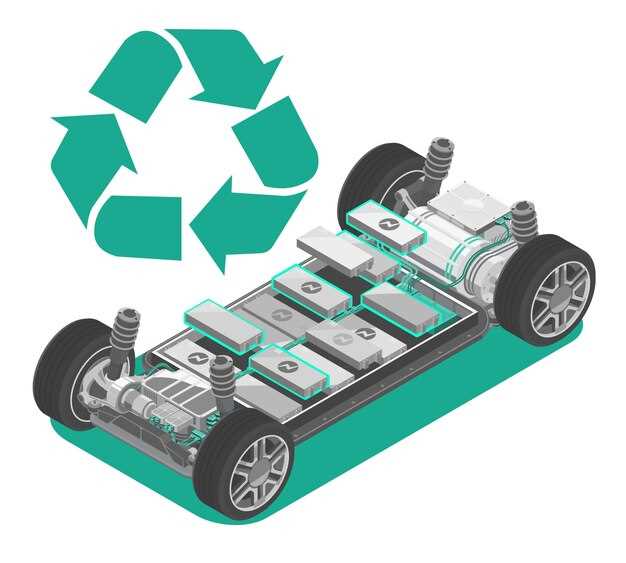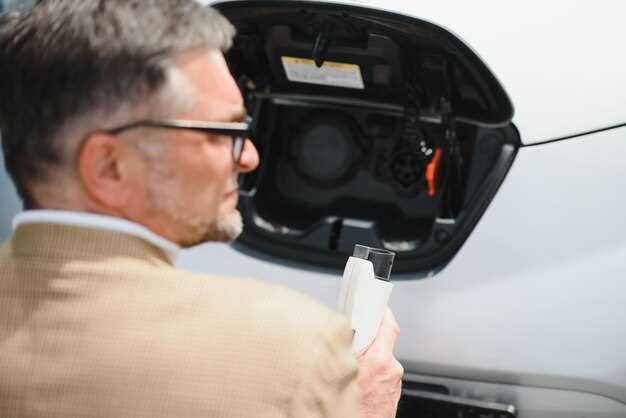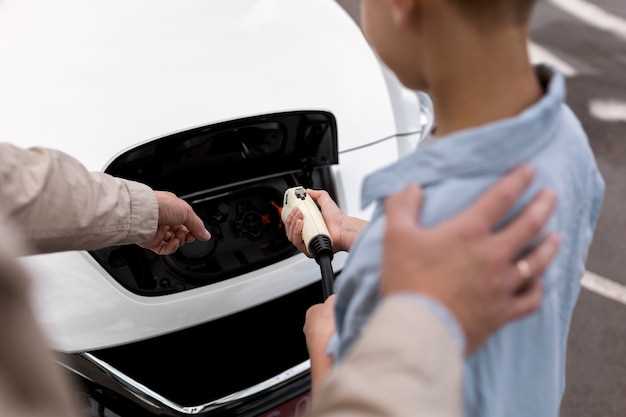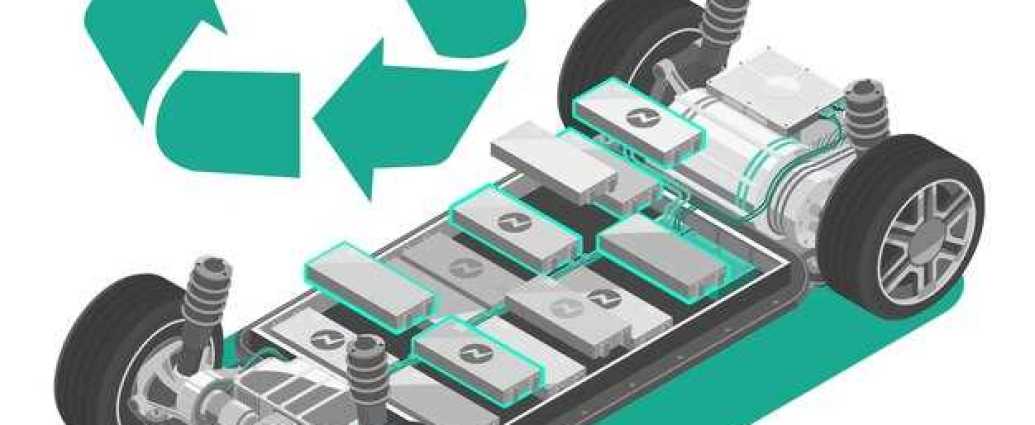
As electric vehicles (EVs) continue to gain popularity, understanding the intricacies of battery replacement has become increasingly important for owners. The battery serves as the heart of any electric vehicle, powering it for hundreds of miles on a single charge. However, like all technological components, batteries have a finite lifespan, and knowing when and how to initiate a replacement is crucial for maintaining optimal vehicle performance.
Replacing an EV battery involves numerous considerations that can affect both the cost and efficiency of the vehicle. Factors such as the type of battery technology utilized, warranty implications, and the specific model of the electric vehicle all play significant roles in determining the best approach to a battery replacement. Additionally, understanding the environmental impact of battery disposal and recycling is essential for responsible ownership.
This guide aims to provide a comprehensive overview of the key elements to consider when contemplating a battery replacement for your electric vehicle. Whether you’re a first-time owner or a seasoned EV enthusiast, being informed will empower you to make decisions that enhance your driving experience while ensuring sustainability and cost-effectiveness.
Guide to Replacing EV Batteries: Key Factors to Consider
Replacing an electric vehicle (EV) battery is a critical decision that can impact performance, cost, and overall vehicle longevity. When contemplating a battery replacement, several key factors must be evaluated to ensure an informed choice.
- Battery Type: Different EVs use various battery types, including lithium-ion and solid-state. Understanding the specific battery used in your vehicle is essential for obtaining the correct replacement.
- Compatibility: Ensure that the replacement battery is compatible with your EV model. This involves checking voltage, size, and connectors to avoid installation issues.
- Warranty: Investigate the warranty offered on the replacement battery. A robust warranty can provide peace of mind and protect against defects or diminished performance during the initial years after purchase.
- Cost: The cost of replacement can vary significantly. Research prices from different suppliers and consider installation costs if not doing it yourself. Weighing the overall investment against expected battery life is crucial.
- Performance Expectations: New batteries often come with improved technology, which may enhance your EV’s range and charging speed. Assess whether the benefits align with your driving needs.
- Recycling Options: Consider the recycling options for the old battery. Many manufacturers offer programs to recycle or repurpose used batteries, contributing to sustainability efforts.
- Installation: Evaluate whether to install the battery yourself or hire a professional. If opting for DIY, ensure you have the necessary tools and knowledge to complete the replacement safely.
- Local Regulations: Be aware of local regulations regarding EV battery replacements. Some regions may have specific guidelines about disposal, recycling, and installation qualifications.
By carefully considering these factors, EV owners can make an informed decision regarding battery replacement, ensuring the continued performance and reliability of their electric vehicle.
Understanding Battery Types and Their Lifespan
When considering the replacement of an electric vehicle (EV) battery, it is crucial to understand the different types of batteries available and their respective lifespans. The most common types used in EVs are Lithium-ion, Nickel-Metal Hydride (NiMH), and Lead-acid batteries.
Lithium-ion batteries are the predominant choice for modern electric vehicles due to their high energy density, lightweight, and longer lifespan. Typically, these batteries can last between 8 to 15 years, depending on usage patterns, charging habits, and environmental conditions. Their ability to maintain performance over time makes them a preferred option for manufacturers.
Nickel-Metal Hydride (NiMH) batteries, while less common in newer models, are noted for their durability and resistance to temperature fluctuations. They generally have a shorter lifespan compared to Lithium-ion options, lasting around 6 to 10 years. NiMH batteries are often found in hybrid vehicles rather than fully electric models.
Lead-acid batteries, the traditional choice for many applications, are seldom used in newer EV designs. They are heavier and less efficient, with a lifespan of about 3 to 5 years in EV applications. While they are cost-effective, their longevity and performance limitations make them less appealing for modern electric vehicles.
Understanding the distinctions among these battery types is essential when planning for a future replacement. Evaluating factors such as initial cost, lifespan, and performance will help in making an informed decision that aligns with your driving needs and budget.
Cost Analysis: Pricing and Budgeting for Replacement

When considering the replacement of an electric vehicle (EV) battery, understanding the associated costs is crucial for effective budgeting. The price of a new EV battery can vary significantly based on several factors.
Firstly, the make and model of the vehicle play a key role in determining the replacement cost. Premium vehicles typically have higher battery prices due to advanced technology and larger capacities. For instance, luxury electric vehicles may require batteries costing upwards of $10,000, while more budget-friendly options may fall between $5,000 and $7,500.
Another important aspect to consider is the type of battery chemistry. Lithium-ion batteries, commonly used in EVs, have different price points depending on their specific configurations. Recent advancements in battery technology may also influence pricing, with emerging chemistries potentially offering a more cost-effective solution in the near future.
Labor costs for the replacement process can add to the overall expenditure. Depending on the complexity of the installation, service fees can range from a few hundred to several thousand dollars. It is advisable to obtain quotes from multiple service providers to gain a better understanding of the pricing landscape.
Aside from direct costs, it is essential to factor in potential warranties and rebates. Some manufacturers offer warranties that cover battery performance for several years, which could mitigate future expenses. Additionally, various government incentives may help offset the costs associated with an EV battery replacement, making it beneficial to research available programs.
In summary, budgeting for an EV battery replacement requires careful analysis of vehicle-specific costs, battery technology, labor fees, and potential savings through warranties or incentives. Preparing for these factors will ensure a more manageable and informed financial decision when the time comes for your EV battery replacement.
Installation Process: DIY vs. Professional Services

Replacing an EV battery is a significant undertaking that can impact the performance and lifespan of your vehicle. When deciding between a DIY approach and hiring professional services, several factors must be evaluated.
DIY Installation: One of the primary advantages of a DIY battery replacement is cost savings. By doing the work yourself, you can avoid labor fees associated with professional services. Additionally, many car enthusiasts enjoy the challenge and satisfaction of completing such projects independently. If you have a solid understanding of automotive mechanics, specific tools, and safety equipment, this approach might be suitable.
However, DIY installation has its drawbacks. EV batteries are sophisticated systems that require knowledge of electrical systems and safety protocols. Improper installation can lead to serious issues, including damage to the vehicle or battery, safety hazards, and voided warranties. Moreover, sourcing the right battery and ensuring compatibility with your EV model may present challenges for inexperienced individuals.
Professional Services: Engaging professional services for battery replacement offers a level of expertise that can be invaluable. Technicians are trained to handle complex electrical systems and are familiar with the specific requirements of various EV models. They typically have access to the necessary tools and diagnostic equipment needed for a seamless battery installation.
Using professional services can also provide peace of mind. When experts undertake the installation, they ensure that the battery is installed correctly, reducing the risk of complications down the line. Furthermore, many service providers offer warranties on their work, potentially saving you from future expenses related to installation errors.
In conclusion, the choice between DIY and professional installation for your EV battery replacement depends largely on your mechanical expertise, available tools, and comfort level with electrical systems. Weighing the pros and cons of each approach will help you make an informed decision that best suits your needs.


